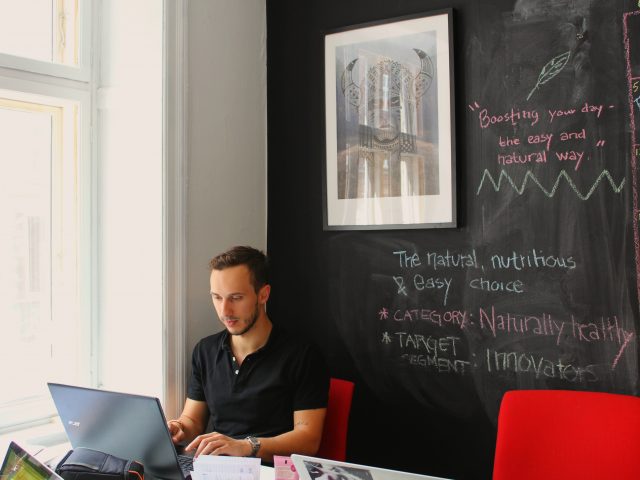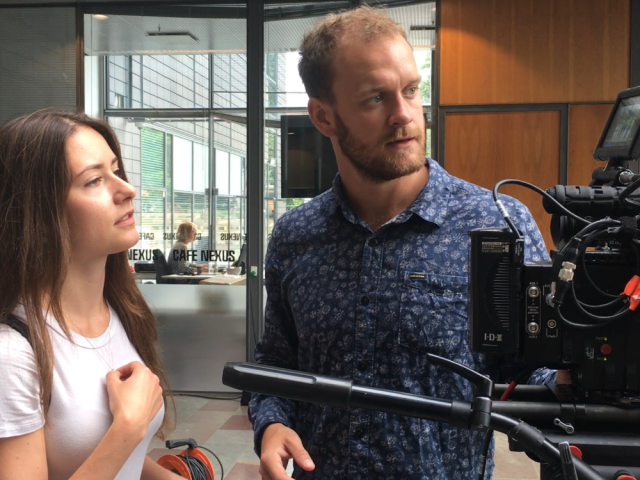Need to land a new job? Here are five soft skills you need

Photo: Blackwell, Flickr
“I’m currently looking for a job/a new job” – that phrase is one I hear over and over again amongst my group of friends. Many of them are looking to find a job ASAP in order to pay their rent while others are just looking for something different to the job they have now.
One of the biggest problems though is that this isn’t just in my group of friends. It’s in my friend’s group of friends, her friend’s group of friends, and her friend’s friend’s group of friends – literally everyone is to some extent looking out for a job.
And it’s not that people aren’t qualified enough, it’s that there are too many qualified individuals for a limited amount of jobs. So, what does it take to be a “more than perfect” candidate? A guest lecturer I had during one of my classes in Organisational Communication seems to believe that it is all about the soft skills.
Soft skills are the terms used by employers to refer to the intangible and non-technical skills that are sought after in a potential candidate. On one of his slides, the guest lecturer listed 5 soft skills that he believes are essential in an employer’s eyes.
I’ve presented the following skills below.
Flexibility
Employers tend to favor candidates who are able to adjust to short-term change. The workplace can be ever changing, and sometimes that might mean that you have to take on a task that isn’t directly in your domain or work a few extra hours to meet a tight deadline. Your employer wants to make sure that you can show you’ll have a can-do attitude in those situations, so make sure that already in the interview stage, you show that you do.

Working under pressure
Speaking of workplaces requiring flexibility, they often also require you to be able to work under pressure in terms of time or work load. You’re already dealing perfectly with the pressure of university (which by the way is an incredible amount of pressure when transferred to a workplace situation) so show your employer that you won’t crumble under pressure.
The ability to solve a problem
Nine out of ten times, your future employer is likely to ask you to describe a scenario where you were faced with a problem and how you solved it. Here, your employer is specifically looking to see how you approach a problem when faced with one. Basically, they want to make sure that you won’t bail when you’re faced with a problem at work. Have some examples at the ready as proof that you can handle problems well.

Communication
The phrase communication is key, and it is golden. Whether or not you end up actually working with communications for a company, your future employer wants to make sure that you are able to communicate in a professional manner. That can mean verbally, in written form, on your CV, or as a part of your LinkedIn – any form of communication really. Make sure that you communicate clearly and politely. What you say goes a long way in creating first impressions.
Team work
More often than not, you’re going to be working as part of a team in your workplace. During interviews, employers try to figure out how you perform in a team and what role you take on. They might ask you about how you see yourself in a team scenario. It might seem like they want to hear that you’re a team-leader who has drive and takes initiative, but if you’re actually not like that, most of the time, your employer can tell. Instead be honest and enhance your best qualities when working in a team.

At the time of this particular lecture, I was on the lookout for a new job as well. I distinctly remember hurriedly scribbling down the five points on the back of my day-to-day planner. Today, about 4 months into a new job, I have found that each one of these skills has in one way or the other come into play during my time at Maersk – I even had to provide concrete examples of number three and four during my initial interview. So essentially what I’m trying to convey is, spend time investing in, discovering, and bettering your soft skills – it quite literally can pay off (and yes, the pun is intended!)





































































































































Very good list. I would add that even if you’re good at teamwork, you should also be a good colleague when you’re not working. Having a positive energy and motivate your team members are really important skills when you want to land your dream job. Some of the things i’m looking at, when i’m hiring new staff at my company.